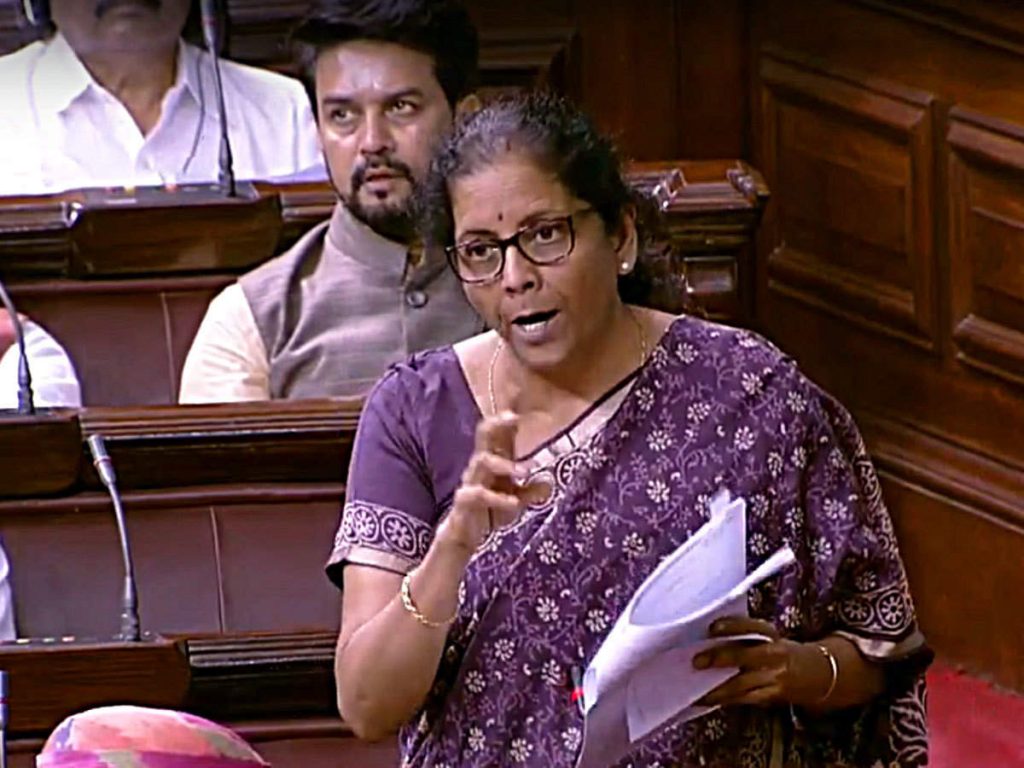New Delhi: Finance Minister Nirmala Sitharaman Monday said in the Lok Sabha that growth has decelerated, but there is no slump and India is still projected to be the fastest growing economy in FY20 among the G-20 nations.
She said the government has been taking several measures to address moderate levels of fixed investment rate in the economy, plateauing of private consumption rate and a modest export performance, with a view to increasing the GDP growth.
In a written reply, Sitharaman said India’s economic growth decelerated but its economy is still the fastest growing among G-20 nations and that the goal of $5 trillion economy will be achieved by 2025.
In a written reply to a question from N.K. Premachandran, MP from Kerala, that despite some recent deceleration in growth, India’s economy was still projected by the World Economic Outlook to grow at the fastest rate among G-20 countries in 2019-20.
“During the last five years, the government has implemented major reforms to build the investment climate in the country for becoming a $5 trillion-dollar economy,” the minister said.
The World Economic Outlook (WEO) of October 2019 projects a significant slowdown in world output and trade in 2019. Yet India, despite some recent deceleration of GDP growth, is still projected by WEO to grow at the fastest rate in 2019-20 among G-20 countries, she said.
On a question whether the government has analysed the impact of implementation of the Goods and Services Tax (GST) on economic slowdown, Sitharaman said the GST reform stands out as the most important measure for improving ease of doing business in the country.
“Further, in the World Bank’s Ease of Doing Business 2020 Report, India’s ranking improved by 14 positions to 63 in 2019 from 77 in 2018 after GST was implemented in 2017,” Sitharaman said.
On the impact of implementation of foreign trade agreements and economic slowdown, she said the government publishes an economic survey of the country on an annual basis analysing various aspects of the economy, including trade agreements and state of the economy. “The government has also been engaging with various stakeholders to understand their concerns and taking appropriate measures for the economy,” she said.
Sitharaman said while taking reform measures, the administration has kept inflation low, fiscal spending disciplined and current account deficit manageable to ensure macroeconomic stability for a healthy investment climate in the country.
India’s economic growth slowed down to 5% in the Q1 and is expected to have declined further in the second quarter for which official data is expected later this month.
In her statement Sitharaman further said the 15% corporate tax rate for new domestic manufacturing companies announced in September was “amongst the lowest in the world”.
For other domestic companies not availing of any tax breaks, the rate was cut from 30% to 22%. She also pointed out the recent move to reduce corporate tax rate from 30 percent to 22 per cent complemented by a cut in the repo rate by 135 basis points during 2019 by the Reserve Bank of India and mandating of banks to link their lending rates with external benchmarks for reducing the cost of capital for investors.
